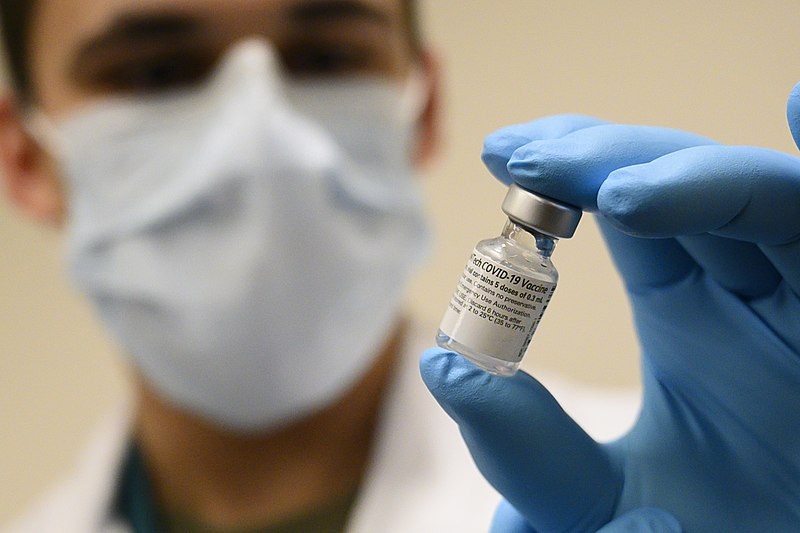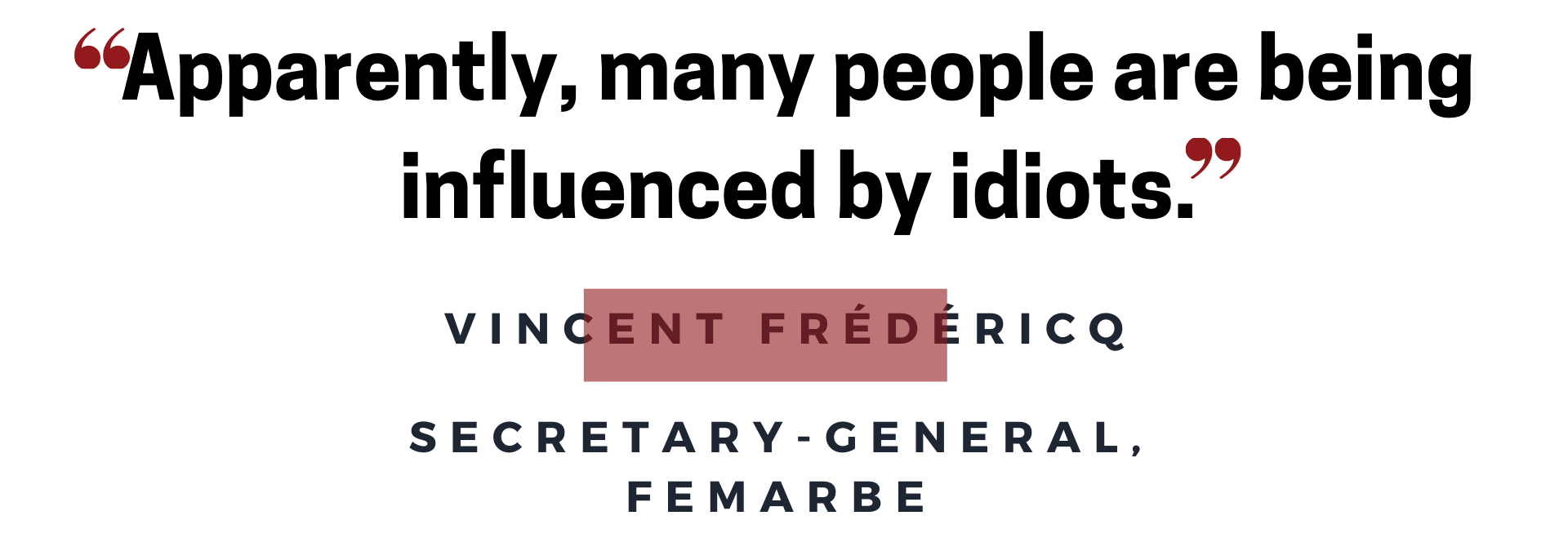Despite informational webinars, training, and even the opportunity to watch management themselves receive the vaccine, large numbers of residential care workers in Wallonia and Brussels are refusing to be vaccinated against the coronavirus.
As many as half of all elderly care workers in Wallonia and 40% of healthcare workers in Brussels are rejecting the vaccine, and experts blame rampant disinformation and “fake news” for the low vaccination rates.
“Apparently, many people are being influenced by idiots,” Vincent Frédéricq told De Standaard.
Frédéricq is the secretary-general of Femarbe, an organisation of private elderly care homes in Wallonia and Brussels, and says the only solution is mandatory vaccination for health personnel.
“Otherwise you risk endangering new residents, or staff dropping out due to illness, even though they could have been vaccinated,” Frédéricq said. “I don’t understand. In April, residential care centres went through a nightmare, and now that a solution is being offered, so many staff members are refusing to take it.”
Related News
Much of the disinformation circulates on social media, where claims that the vaccine causes infertility or death are so rampant that companies like Twitter, Facebook and Instagram have employed measures to combat the issue. This includes automatically tagging posts that contain the word “vaccine” with links to official government websites where reliable information can be found.
Unlike in Francophone Belgium, vaccination rates in Flanders are high. According to the Flemish Agency for Care and Health, which has an online vaccination tracker, only 6% of healthcare workers in Flanders have refused the vaccine.
At the beginning of January, Flemish Agency for Care and Health launched an intensive information campaign around the vaccine that includes an official website with videos, webinars, fliers, Facebook profile templates, Twitter headers, and even pre-made banners that can be added to an email signature to encourage people to vaccinate.
“Together with the vaccination in the residential care centres, approximately 11,000 primary care providers have already been vaccinated, mainly general practitioners and home nurses,” the agency announced yesterday.
“The vaccination of these priority target groups will be structurally continued from the week of 15 February. About 50,000 health care providers will be invited to get vaccinated at a vaccination centre in their primary care area from mid-February.”
In Brussels, experts are hopeful about increasing vaccination rates through efforts in education and awareness.
"We did not expect that the willingness to be vaccinated would be so low," Inge Neven of the Brussels health inspection told De Standaard. “But compared to the start of the campaign, things are now going reasonably well.”
Neven noted that people are often influenced by information circulating in their own communities, including social media or news channels linked to those.
She said that when they noticed people refusing vaccine doses, they began making webinars and videos in which staff could see their colleagues being vaccinated, hoping to appeal to a “group mentality.”
In the Neder-Over-Heembeek neighbourhood of Brussels, the director of De Overbron elderly care facility says that the issue of vaccine refusal has come predominantly from younger people.
"By investing heavily in an informational and motivational campaign, we succeeded in vaccinating 95% of the permanent care staff," Director Bert Anciaux, who is also a Senator with the Socialist Party of Flanders (sp.a) said. “But the three student workers who are working here have all refused. The most crazy conspiracy theories are circulating among young people.”
Helen Lyons
The Brussels Times


